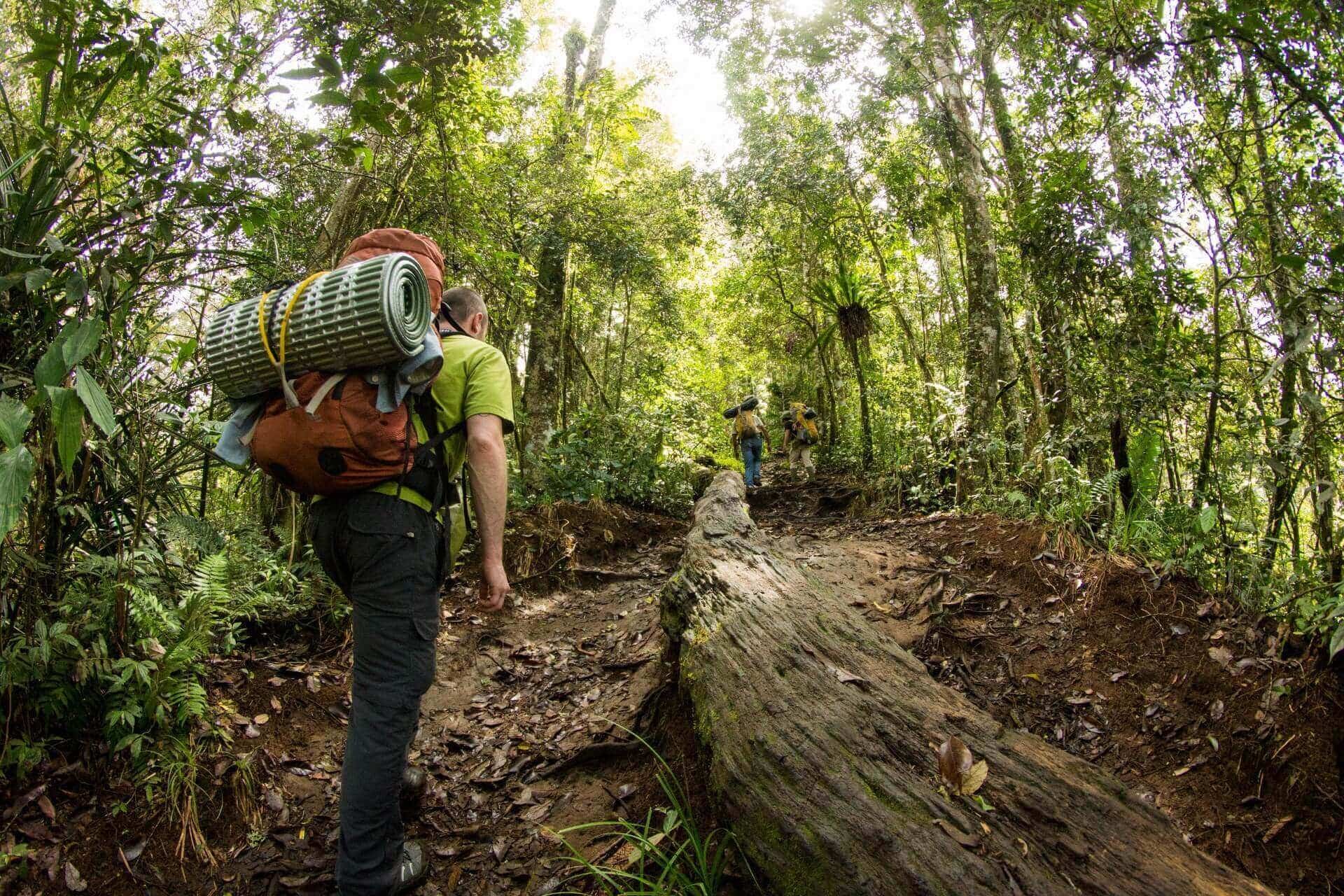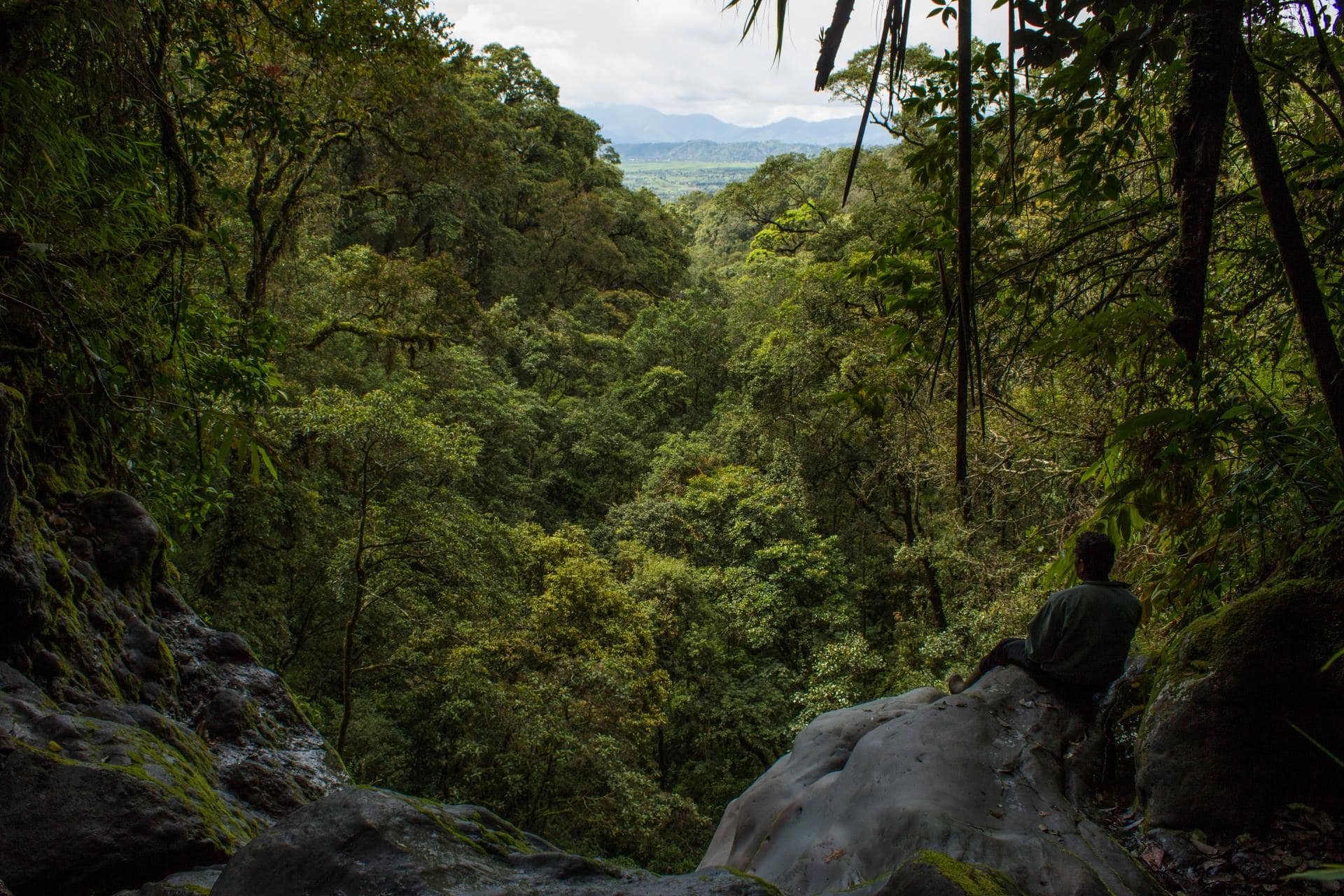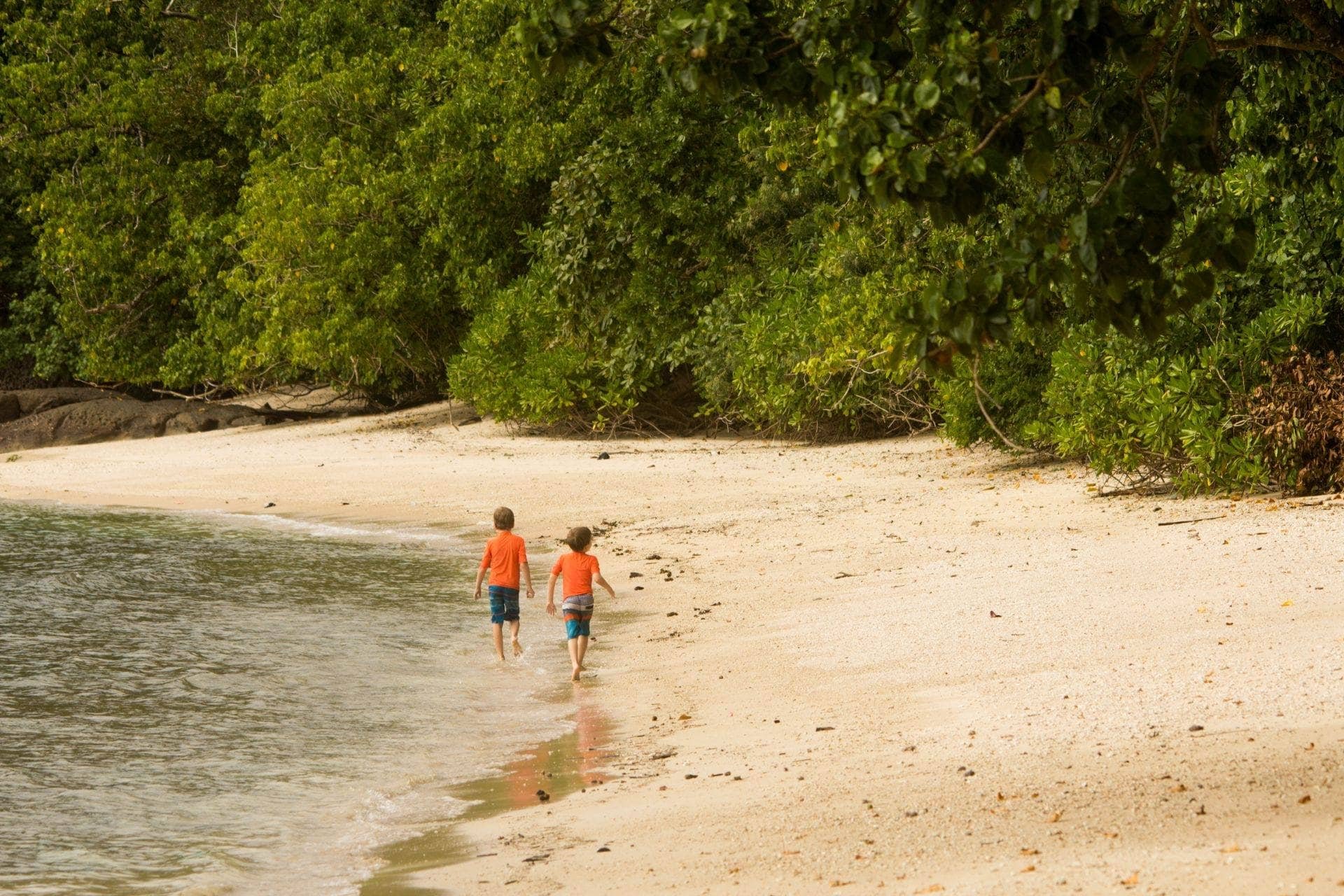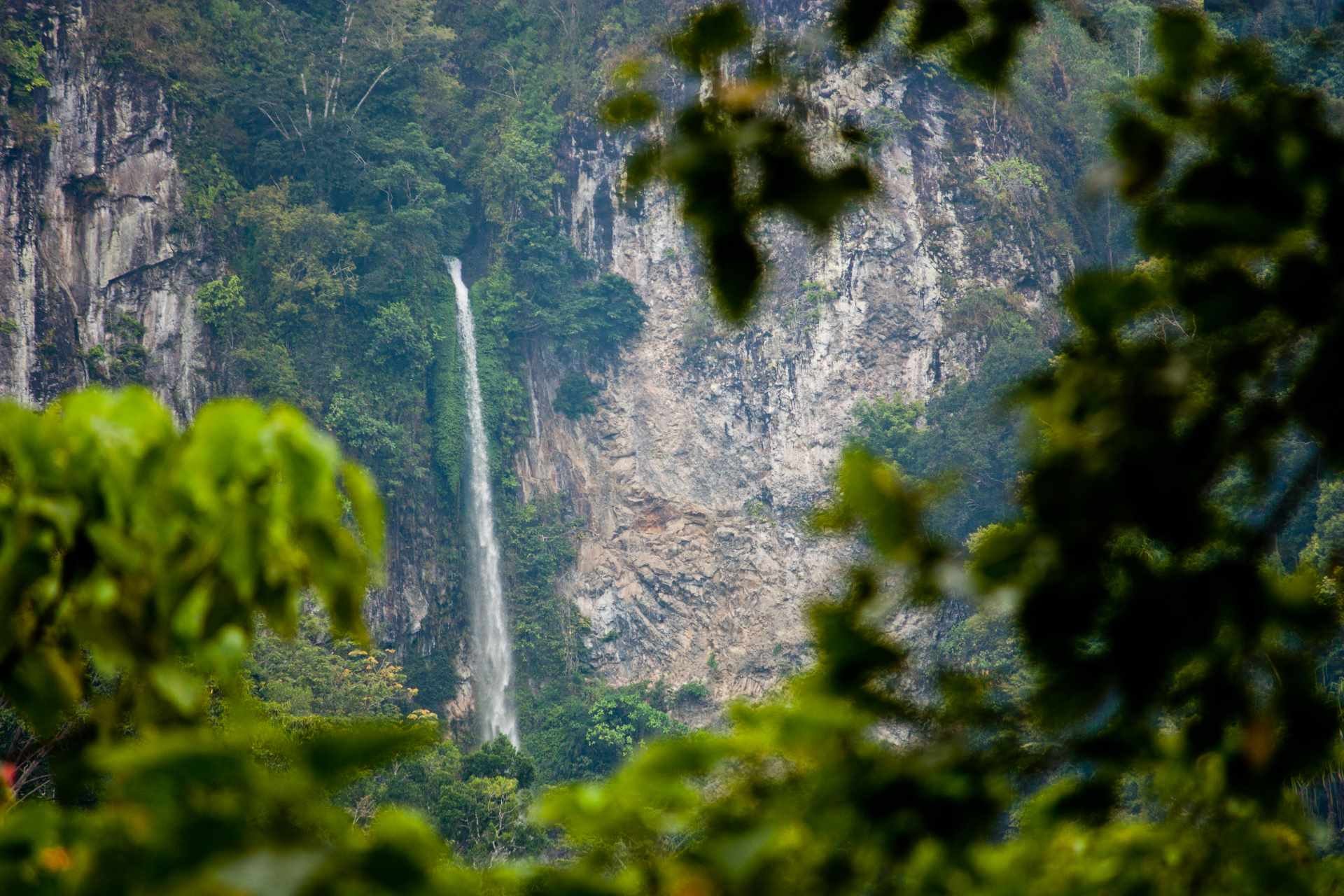Eco-Tourism
THE CHALLENGE
Bengkulu, Indonesia is a remote region on the Sumatra Island. It takes 20-25 hours on a bus to venture there from the Jakarta airport. There is no easy access to this part of the island. Large portions of the province are natural forests, majestic waterfalls, and white sandy beaches. It is home to just over 2 million (400,000 within the capital city).
For a number of years, land use change to more settlements, palm oil plantations, and agricultural use has created a deforestation problem. Conflicts between government control and indigenous land owners have also made these issues complex. Indigenous land owners want to use their land to grow food, medicinal plants, and crops (such as coffee beans) to support their families.
Some attempts have been made to help communities harvest NTFPs (non-timber forest products) and allow indigenous communities to prove how they are the better environmental care keepers of their own region.
A SOLUTION
Wild Sumatra Tours is helping to stimulate the local economy and promote forest restoration through ecotourism in one of the most economically disadvantaged areas of Bengkulu, Indonesia. They work with rural communities to empower local guides, helping connect them with off-the-beaten-path adventurers looking for authentic trekking and cultural experiences in the Bengkulu region.
Due to the impact of COVID on tourism, they’ve expanded their efforts to include sustainable coffee production and agricultural research and development. Working and offering training with their local communities empowers the local cultures to take pride in themselves, their culture, and their environment.
Business Activities Geared Towards Promoting Economic Growth While Preserving Life On Land:
Target: Promote sustainable tourism that creates jobs and promotes local culture and products (From target 8.9)
Target: Promote the conservation, restoration, and sustainable use of local ecosystems (Adapted from target 15.1)
Measured by:
Number of local guides used/employed each quarter.
Number of local people partnering for the sale of coffee. (New)
Number of full-time, part-time, and/or temporary workers employed this quarter. (New)
Number of partnerships with local businesses (Revised)
Amount of money flowed to this area that would not have otherwise without the project for economic growth.
Kilograms of coffee produced each quarter.
Kilograms of dried red cherry beans.
Kilograms of sorted red cherry beans.
Kilograms of roasted beans.
How has the project aided in conservation in the local area and throughout Indonesia each quarter. (New)
Research occurred each quarter to tackle the problem of Coffee Borer Beetles. (New)
How the guest houses for tourists have been used or improved each quarter. (New)
Wild Sumatra Tours works with rural communities to empower local guides, helping connect them with off-the-beaten-path adventurers looking for authentic trekking and cultural experiences in the Bengkulu region. Due to the impact of COVID on tourism, they’ve expanded their efforts to include sustainable coffee production and agricultural research and development. Working and offering training with their local communities empowers the local cultures to take pride in themselves, their culture, and their environment.


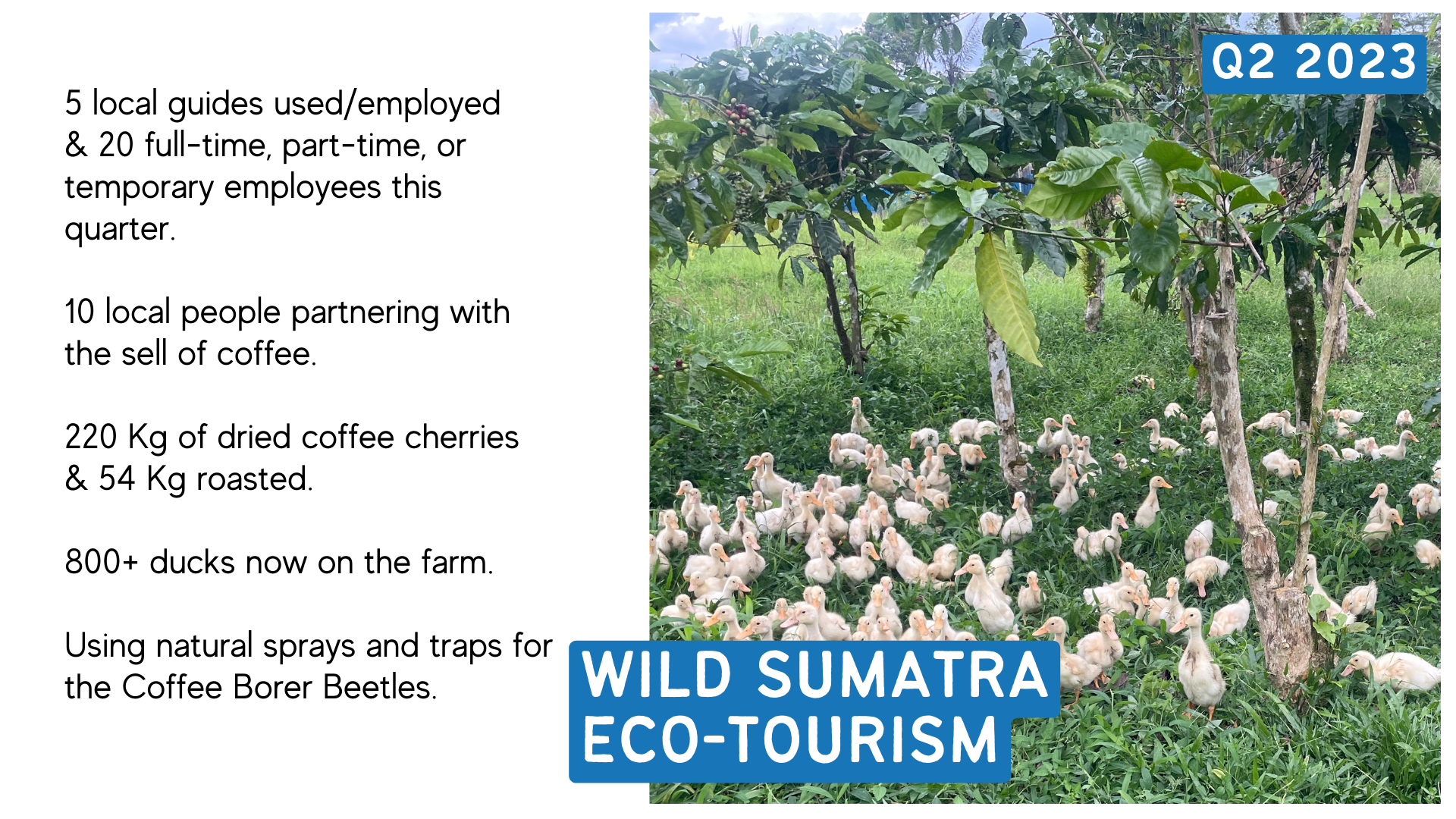


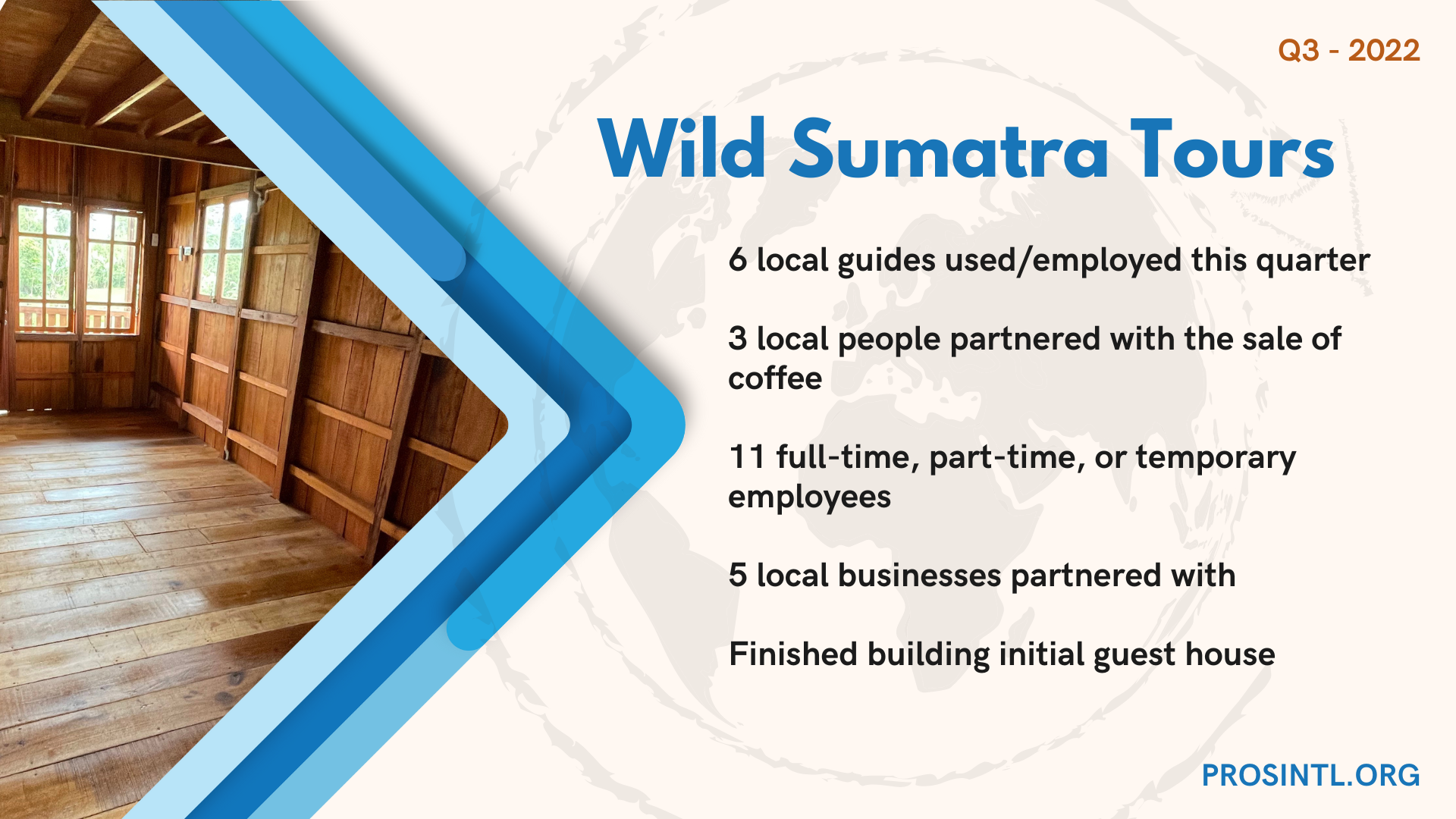







What Does Your Donation Go Towards?
Initial salaries for 10+ local employees as local guides for eco-tourism trips and for coffee growing, harvesting, and production.
Hire employee specifically to engage in research regarding “coffee borer beetles”
Coffee processing equipment (solar-powered drying house, pulping machine, etc.)
Coffee roasting and packaging equipment
Building supplies to finish initial small guesthouse and build main larger guesthouse


